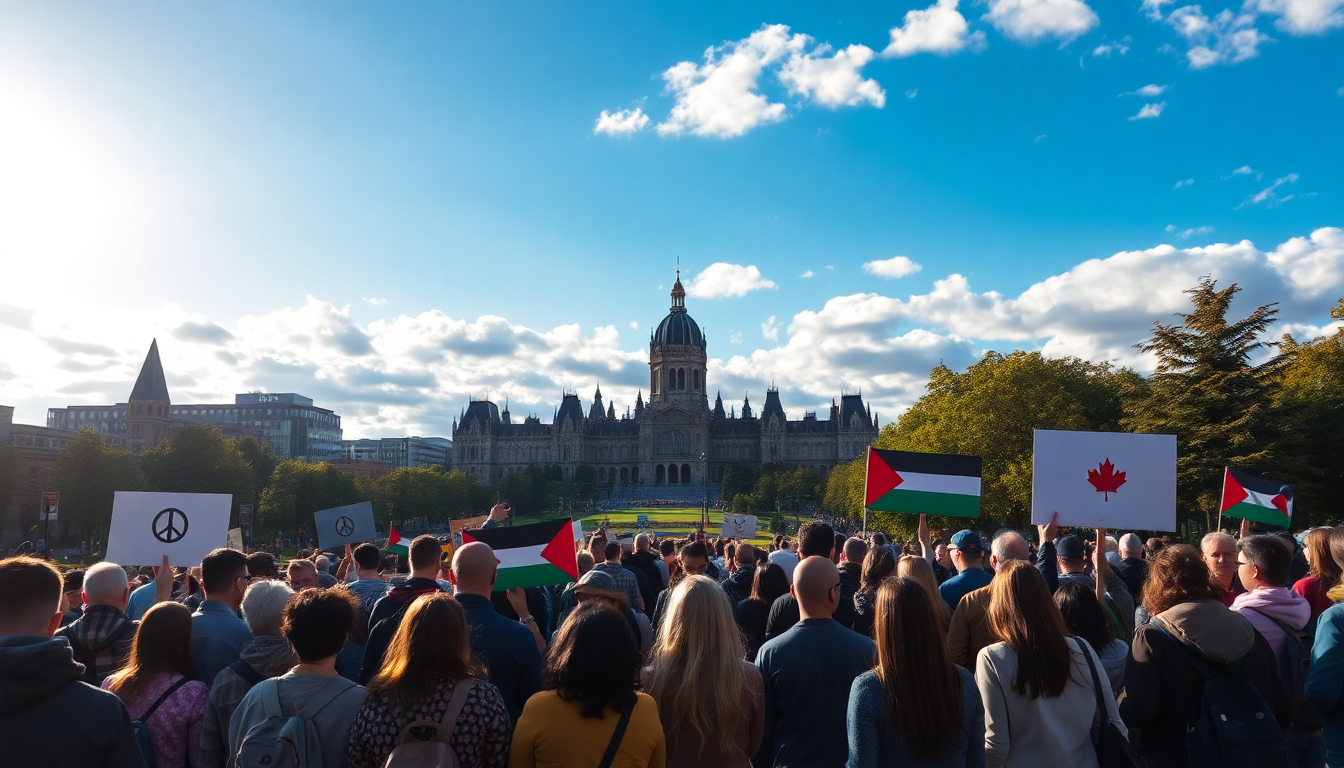Table of Contents
The geopolitical landscape surrounding the Israeli-Palestinian conflict is shifting, and it’s hard to ignore the impact of recent announcements from various nations calling for the recognition of a Palestinian state. Take, for instance, Canadian Prime Minister Mark Carney’s statement, where he expressed his intention to recognize a Palestinian state during an upcoming United Nations meeting.
This bold move reflects a growing international concern over the humanitarian crisis in Gaza and the intricate web of diplomatic relations in the region. But what does this really mean for the future?
Canada’s Position and the International Response
Carney’s announcement is a crucial turning point in Canadian foreign policy regarding the ongoing Gaza conflict. He stressed the importance of keeping the two-state solution on the table, pointing out the urgent need for reforms within the Palestinian Authority.
This includes improving governance and organizing general elections—without Hamas’s participation. It’s a strategic approach that shows Canada is navigating a complex political landscape with care.
In response, Israeli officials have been quick to criticize Canada’s stance, calling it a “reward for Hamas.” They argue that this position undermines efforts to achieve a ceasefire and secure the release of hostages taken during recent violence.
This clash of viewpoints highlights just how delicate the balance is for countries trying to address the multifaceted Israeli-Palestinian conflict.
Interestingly, Canada isn’t alone in this stance. France and the United Kingdom have also indicated their willingness to recognize a Palestinian state, but only if hostilities cease.
This trend among some of Israel’s closest allies suggests a growing frustration with the humanitarian conditions in Gaza and the lack of progress in peace negotiations. Isn’t it fascinating how international relations can change so rapidly?
Humanitarian Concerns and Diplomatic Pressures
The humanitarian crisis in Gaza has reached a critical point, with alarming reports of civilian casualties and widespread destruction from ongoing military operations. Carney’s condemnation of the situation reflects a larger wave of international outrage that’s starting to shape diplomatic relations and policy decisions around the globe. Yet, the U.S. administration stands firm against recognizing a Palestinian state, suggesting that such a move could reward Hamas rather than focusing on delivering humanitarian aid.
The implications of these developments are significant. As global concern grows over the humanitarian crisis, Israeli Prime Minister Benjamin Netanyahu’s government is feeling the heat. This pressure could potentially alter Israel’s approach to negotiations and military actions, especially if allies continue to push for Palestinian statehood amidst ongoing conflict.
Moreover, these diplomatic shifts could have far-reaching effects beyond immediate political outcomes. Recognizing a Palestinian state could reshape alliances, affect trade relations, and change the dynamics of Middle Eastern geopolitics. As countries navigate these complex waters, the balance between humanitarian needs and geopolitical interests will be critical in shaping the future of the Israeli-Palestinian conflict. So, what’s next?
Looking Ahead: Potential Outcomes and Future Considerations
As we gaze into the future, Canada’s potential recognition of a Palestinian state raises crucial questions about the feasibility of a two-state solution. The historical context of the Israeli-Palestinian conflict is filled with hurdles, and the current political landscape presents both opportunities and challenges for achieving lasting peace. It’s clear that constructive dialogue and negotiation will be essential, even as tensions continue to rise.
In the coming months, how both Palestinian authorities and Israeli leaders respond will play a pivotal role in determining the direction of this situation. Renewed negotiations may depend on a willingness to tackle core issues, such as governance, security, and humanitarian access. As international actors push for a more balanced approach, the hope for a peaceful resolution may hinge on both sides’ ability to engage in meaningful dialogue. Isn’t that what we all want—a chance for peace?
In conclusion, the evolving landscape of international recognition for Palestine marks a significant shift in global attitudes toward the Israeli-Palestinian conflict. As nations wrestle with the complexities of diplomacy, humanitarian concerns, and political legitimacy, the road ahead remains uncertain but crucial for finding a sustainable resolution to one of the most enduring conflicts in modern history. Will this be the turning point we’ve all been waiting for?





